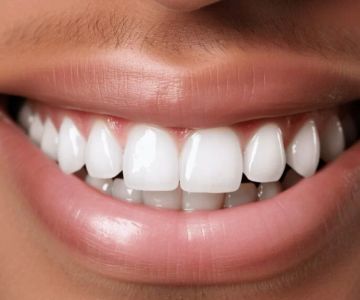Understanding Tooth Decay
Tooth decay is a common issue that occurs when the bacteria in our mouth turn the sugar from the food and drinks we consume into energy and produce acid. This acid damages the teeth, starting as a white or dark spot and potentially developing into a hole or cavity. The saliva in our mouths plays a crucial role in protecting against tooth decay and can even repair early stages of damage. However, factors such as having less saliva or a dry mouth due to dehydration, certain medical conditions, or the use of specific medications or drugs increase the risk of tooth decay.
Preventive Measures
Eating a healthy diet is essential. Reduce the intake of sugary drinks and avoid adding sugar to tea or coffee. Choose water (especially fluoridated tap water) over soft drinks or juice. Be vigilant about hidden sugars in snacks, cereals, and other packaged products. Maintaining good oral hygiene by brushing your teeth twice a day with fluoride toothpaste and flossing once a day is vital. Remember, brushing alone isn't enough; flossing or using an interdental brush helps clean areas that a toothbrush can't reach. Avoid giving babies and toddlers sweet drinks in bottles or sippy cups, especially at night, as this can cause tooth decay. Wiping a baby's gums and starting to brush their teeth as they grow helps prevent cavities.
The Importance of Saliva
Saliva is a natural defense mechanism against tooth decay. Medications, dehydration, high caffeine intake, and certain medical conditions like Sjogren's syndrome or radiotherapy and chemotherapy can reduce saliva production, increasing the risk of tooth decay.
Treatment Options
In the early stages of tooth decay, maintaining good oral hygiene can make a significant difference. X-rays and regular dental check-ups help detect problems early. When needed, a dentist will remove the damaged part of the tooth and fill it. In severe cases, root canal treatment may be necessary to save the tooth. Early detection and treatment are crucial to preserve tooth strength and prevent the decay from spreading.
Oral Health for Children
Parents and caregivers play a vital role in their children's oral health. Wiping a baby's gums twice a day from the first feeding and before bed helps remove bacteria and sugars. When teeth come in, start brushing twice a day with plain water and a soft, small-bristled toothbrush. Visit the dentist by the baby's first birthday. Talk to the dentist or doctor about applying fluoride varnish on the child's teeth as soon as the first tooth appears. Brush their teeth twice a day with fluoride toothpaste and help them until they develop good brushing skills. Ask the dentist to apply dental sealants when appropriate and ensure they drink fluoridated tap water. If needed, use resources like the Insure Kids Now Dentist Locator to find a suitable dentist.
Ongoing Research and Developments
Researchers are constantly studying new methods and products to prevent and treat tooth decay. Toothpastes and mouth rinses that can reverse and "heal" early cavities are being explored, offering hope for more effective oral health solutions in the future.
In summary, preventing tooth decay through oral health education involves a combination of a healthy diet, proper oral hygiene practices, regular dental check-ups, and taking appropriate measures for children's oral health. By being informed and proactive, we can significantly reduce the risk of tooth decay and maintain strong, healthy teeth for a lifetime.

 Westgate Dental Arts
Westgate Dental Arts Coventry Family Dental
Coventry Family Dental Familia Dental
Familia Dental Dr. Daniel S. Fife, DDS
Dr. Daniel S. Fife, DDS Dentistry At Suburban Square: Michael I. Wollock, DMD
Dentistry At Suburban Square: Michael I. Wollock, DMD Comfort Care Dental
Comfort Care Dental The Importance of Oral Health Education During Pregnancy for a Healthy Pregnancy
The Importance of Oral Health Education During Pregnancy for a Healthy Pregnancy Why Skipping Dental Checkups Can Lead to Bigger Oral Health Problems
Why Skipping Dental Checkups Can Lead to Bigger Oral Health Problems Advantages of Porcelain Dental Restorations
Advantages of Porcelain Dental Restorations Best Tips for Brushing Your Teeth Properly for Healthy Gums: Essential Techniques for Oral Health
Best Tips for Brushing Your Teeth Properly for Healthy Gums: Essential Techniques for Oral Health How Can Diabetes Cause Tooth and Gum Problems? Preventing and Managing Oral Health Issues
How Can Diabetes Cause Tooth and Gum Problems? Preventing and Managing Oral Health Issues Healthy Habits for Promoting Good Oral Health and Hygiene: Tips for a Healthy Smile
Healthy Habits for Promoting Good Oral Health and Hygiene: Tips for a Healthy Smile